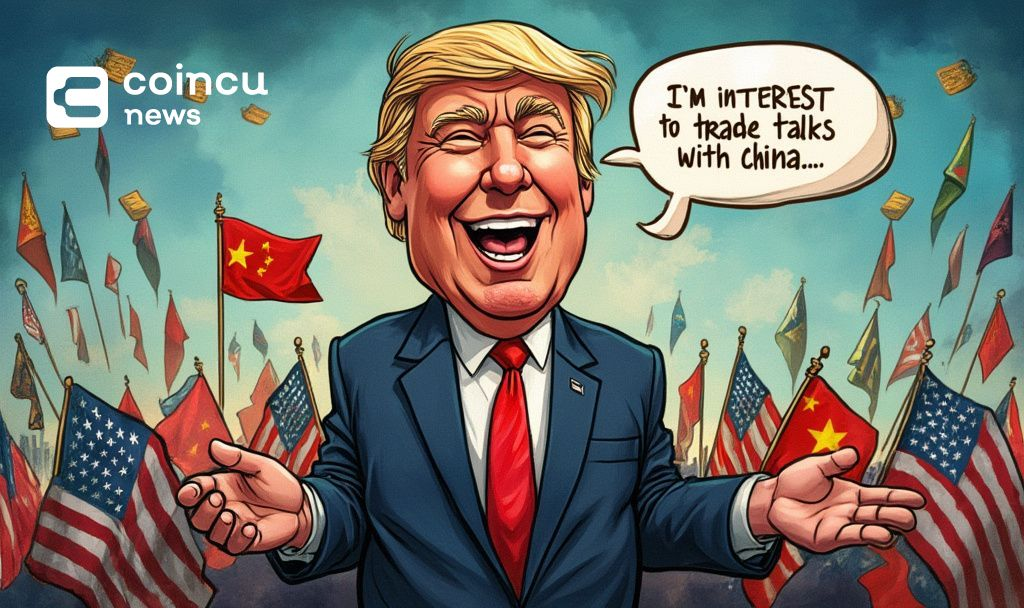- U.S. President Trump signals readiness to negotiate with China.
- Trade tensions persist with high tariffs on both sides.
- Market reactions include fluctuating indices and economic forecasts.

President Donald Trump has expressed openness to negotiate a trade agreement with China, as stated by the White House on April 12. This development could signal a shift in U.S.-China trade dynamics.
Donald Trump, President of the United States, “China wants to make a deal, badly, but they don’t know how to get it started” – source
Trade tensions remain high with existing tariffs. Trump’s willingness to negotiate contrasts with China’s defensive stance, with experts predicting continued market volatility.
Trump Signals New Phase in U.S.-China Relations
President Donald Trump has indicated his readiness to engage in trade discussions with China following escalating tariffs. Previously, tariffs increased by 145% on Chinese imports, while China imposed an 84% tariff on U.S. goods. Amendment on tariffs and duties for imports from China highlights ongoing negotiations needed to address these substantial tariffs. Both nations have publicly recognized the need for negotiations based on respect and mutual benefit, seeking to curb ongoing economic disruptions.
Financial markets are reacting variably, with U.S. indices like the S&P 500 futures experiencing declines, while Asian markets showed mixed outcomes. President Trump claims financial benefits from tariffs, although economists warn of potential inflation and broader economic risks. Market stability remains uncertain as both countries continue negotiations.
China, advocating for an equitable dialogue, has emphasized its position through official statements. Spokespersons have reiterated the importance of mutual respect but maintain a firm stance against perceived trade injustices. Relevant insights can be found on CBS News updates and reports. Both nations’ leaderships are carefully navigating the complex trade landscape to protect their economic interests.
Global Market Impacts Amid U.S.-China Tariff Escalation
He Yongqian, Spokesperson for China’s Ministry of Commerce, “Dialogue must be conducted on an equal basis with mutual respect” – source
The U.S.-China trade conflict echoes historical trade disputes, marking a modern era of economic confrontation. Since the tariff spike, global supply chains have shown significant strain, affecting industries reliant on international trade. Potential impacts include shifts in global markets and regulatory adaptations as both countries seek a resolution.
Analysts highlight potential shifts in international trade policies as both countries navigate this dispute. Some sectors, like manufacturing and exports, are considering strategic relocations to mitigate tariff-induced profit declines. The continued uncertainty in U.S.-China relations underscores the necessity for stable trade frameworks and predictable economic policies.























